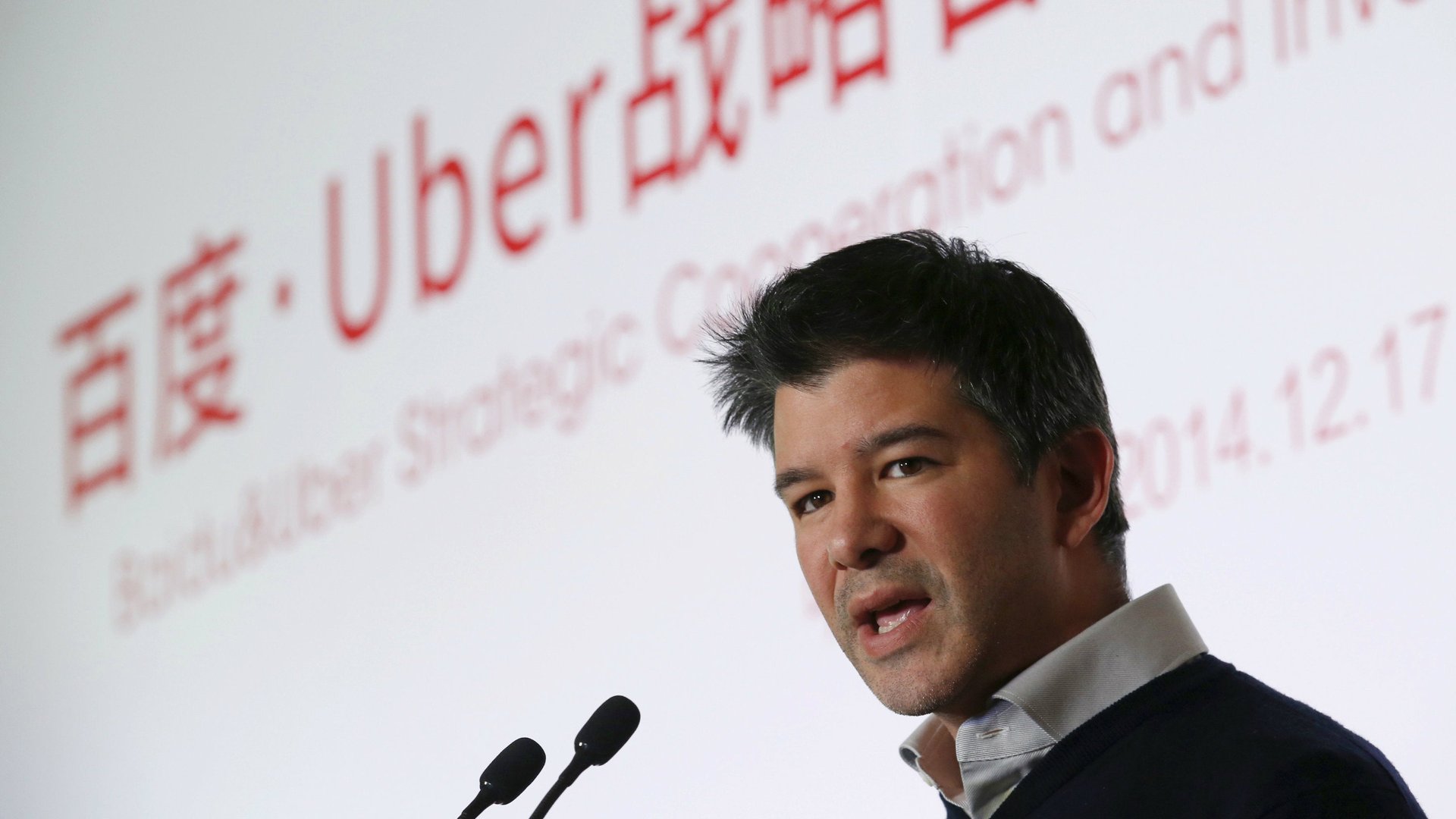Uber’s expansion in China has been near-flawless—except it may be too late
Baidu, China’s dominant search engine, today confirmed a strategic investment in Uber, the US-based on-demand car app that launched in China earlier this year. In addition to an undisclosed financial investment, Uber will be promoted on Baidu’s maps and mobile search products, and will presumably also benefit from Baidu’s political connections within China—a resource that is crucial for any internet company operating on the mainland.


Baidu, China’s dominant search engine, today confirmed a strategic investment in Uber, the US-based on-demand car app that launched in China earlier this year. In addition to an undisclosed financial investment, Uber will be promoted on Baidu’s maps and mobile search products, and will presumably also benefit from Baidu’s political connections within China—a resource that is crucial for any internet company operating on the mainland.
The Baidu deal is the latest sign that Uber’s entrance into China, the world’s biggest smartphone and automotive market, is proceeding—at least so far—with fewer speed bumps and roadblocks it has encountered in countries like India and even some major cities in the US and Europe.
Despite Uber’s reputation for brashness elsewhere, the company launched rather quietly in China this summer when it created “People’s Uber,” a non-profit ride-sharing service focused almost exclusively around Beijing’s central business district. Since then the company has expanded quickly into relatively underdeveloped inland cities like Wuhan and Chongqing, where infrastructure is limited and fewer people own cars. It now operates in nine Chinese cities, and has plans to expand into a total of 14.
Uber also seems to have found a good match in China, where the legal system is applied rather loosely and circumstantially, which incentivizes entrepreneurs to act first and ask for forgiveness later, rather than waiting for permission.
Even Uber’s Chinese name (优步, pronouced “yo-bu”) is a clever transliteration that carries an appropriate meaning in Chinese. 优 means “superior” or “excellent,” while 步 means “a step,” as in a stage in a process. Thinking of a good name may sound pretty basic, but it’s amazing how many foreign companies manage to screw it up.
But there are still major obstacles facing Uber in China, not least of which is China’s thriving taxi app scene. Far from leading a digital revolution in taxis, Uber is actually playing catch-up.
Didi Dache, one of China’s biggest taxi apps, works similarly to Uber but draws from a pool of licensed city cabs, rather than private cars. It has the benefit of being embedded into WeChat, the country’s most popular messaging app, meaning all 400 million WeChat users have Didi on their phones. That’s helping Didi serve 5 million journeys per day (link in Chinese).
Kuaidi Dache, another major competitor, started out connecting passengers to city cabs but has since expanded into connecting passengers with private cars, like Uber. Kuaidi is backed by a subsidiary of Alibaba, which has the political heft to conceivably outmaneuver Baidu in a battle for influence.
Crucially in such a battle, being American will be a major hindrance to Uber. Getting blocked online, restricted by onerous regulations, or kicked out of the country altogether is a familiar story for foreign tech firms working in China. This year the government stepped up its attacks on US tech companies in particular, citing data privacy issues as a primary complaint. Uber’s claims then that it gathers enough data to tell who’s having a one-night stand may not be happily received by Chinese policymakers—especially those worried about the potential intelligence implications of being able to track a user’s every move.